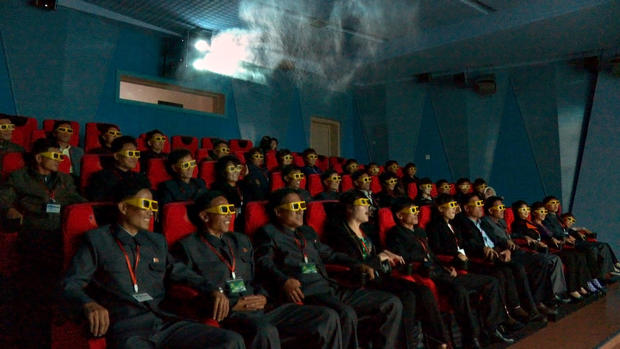How should the world respond to North Korea's nuclear test?
North Korea captured the world's attention earlier this week after claiming that it successfully tested a miniaturized hydrogen bomb. Though U.S. intelligence is "highly skeptical" it was a thermonuclear device, experts say it could still represent a leap forward in North Korea's nuclear program - and the world must calibrate its response accordingly.
"This is a really unstable regime, one whose leadership we really don't understand, that really presents a risk not just to peace on the Korean Peninsula, not just to South Korea or even neighbors like Japan, but also potentially to the United States," said CBS News Senior National Security Analyst Juan Zarate. "It does put North Korea on a higher level of attention," and, he added, it raises the question, "Can something be done other than what has been the strategy, frankly, of strategic patience?"
An analysis by the Center for Strategic and International Studies (CSIS) maintains that the nuclear test "doesn't change the military equation." It does, however, put Pyongyang one step closer to being able to mount a nuclear warhead on a missile, wrote CSIS' Sharon Squassoni, director of the Proliferation Prevention Program and CSIS Korea Chair Victor Cha.
The United Nations Security Council is promising a new round of sanctions against North Korea, although years of punitive economic policies have so far failed to convince the country's leadership to abandon its pursuit of nuclear weapons. Though North Korea initially signed onto the Nuclear Nonproliferation Treaty in 1985, it ultimately expelled inspectors, withdrew from the treaty in early 2003 and continued its work to build weapons. This week's test was its fourth nuclear test.
"Pyongyang...is fully prepared to defy existing international agreements for its own purposes, regardless of the consequences for global or regional security or for nuclear non-proliferation as a whole," wrote Jonathan Pollack, a senior fellow at the Brookings Institution. "Irrespective of the costs that the international community has sought to impose on North Korea, these have not been sufficient to convince or compel Pyongyang to behave differently."
One of the challenges in trying to curb North Korea's nuclear ambitions is that the U.S. is "constantly behind the curve" on understanding the country and its ambitions, Zarate said.
"Even the Chinese, who are closely allied with the North Koreans, have a hard time not just managing them but even understanding what decision-making is like," he said.
The U.S. could choose to respond with a show of strength, as it did in 2013 after North Korea's last nuclear test. At that time, the military sent B-2 stealth bombers, F-22 stealth fighters and B-52 bombers to conduct drills with South Korea and remind North Korea of American military might. The two bombers are capable of carrying nuclear weapons.
South Korea's Defense Ministry said Thursday that leaders from Seoul and Washington had discussed deploying U.S. "strategic assets" once again.
But in this case, getting the Chinese more actively involved may be key.
"North Korea now has to be at the top of the list, it can't be number seven or number eight on a list of issues" the U.S. is discussing with China, Zarate said. And Pollack agreed, calling China's role "critical."
"At present, North Korea's economic dependence on China continues to grow, even as Kim Jong-un defies [Chinese president] Xi Jinping at every turn," he wrote. "It seems likely that attention will soon turn to additional restrictions on international banking activity in North Korea, and the role of Chinese banks will be central. Major Chinese banks do not want to find themselves sanctioned for their activities in the North and the day may not be too distant when these banks will need to choose: Do they sustain involvement in the North, even if it affects their much larger interests in international banking as a whole?"
While those actions aren't guaranteed to stop North Korea's nuclear ambitions, he added, they will at least "make explicit" the price the regime will pay for going even further.
Secretary of State John Kerry said Thursday that he told his Chinese counterpart Wang Yi China "cannot continue business as usual" with North Korea. He denied the U.S. had let North Korea drift off its radar, saying, "China had a particular approach that it wanted to make, that we agreed and respected to give them space to implement that." And Kerry was quick to give Wang his thoughts on the approach -- "that has not worked," he told him.
Congress may also propose additional sanctions enforcement against banks that enable North Korea to develop its nuclear program. An aide to House Majority Leader Kevin McCarthy told Foreign Policy that the legislation would be based on the North Korea Sanctions Enforcement Act, which passed the House Foreign Affairs Committee last year in the wake of North Korea's hack of Sony Pictures. House Minority Leader Nancy Pelosi said Thursday that Democrats would support the legislation.
